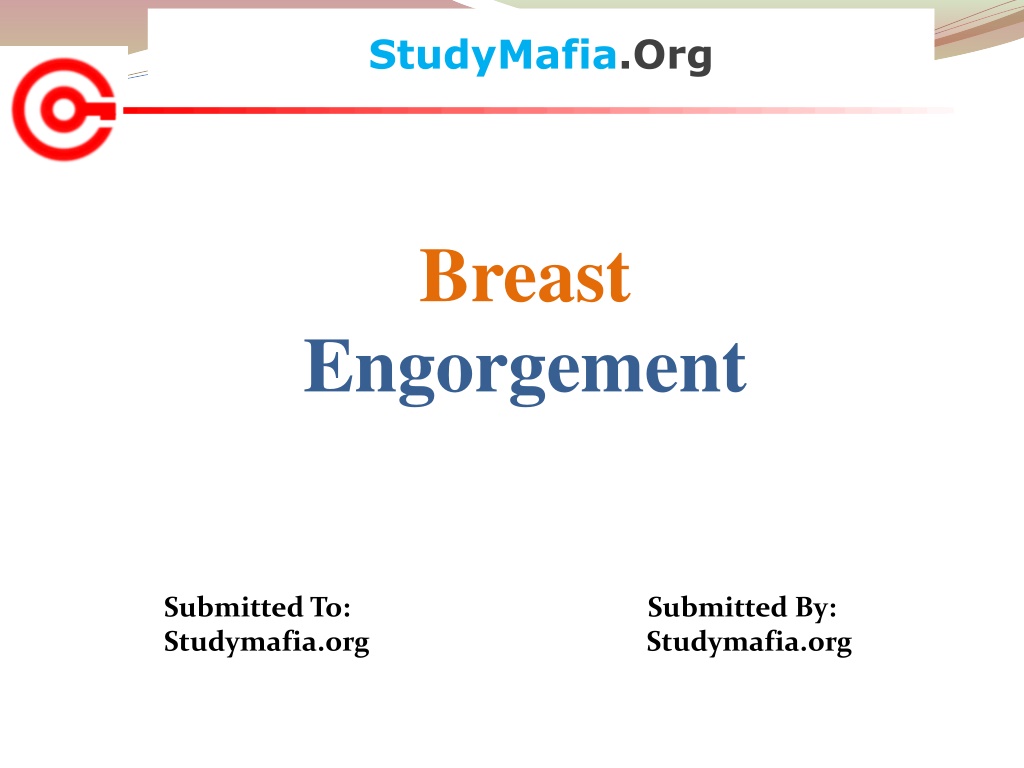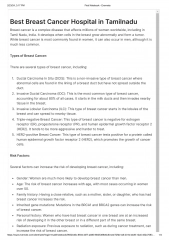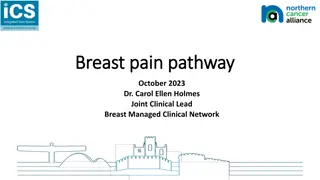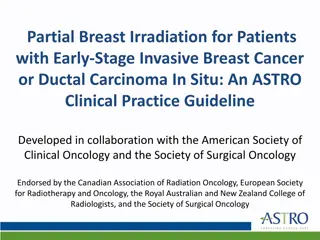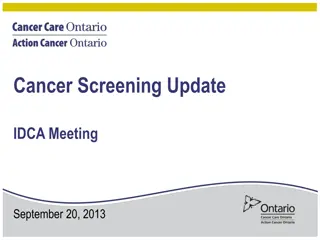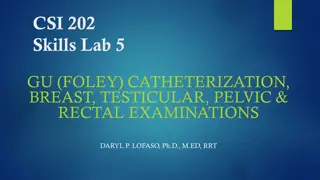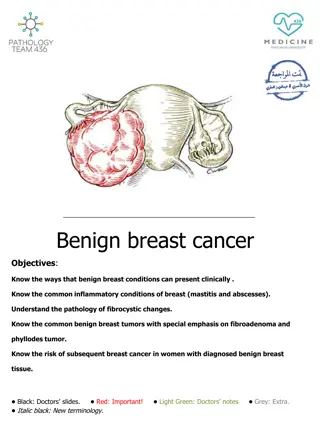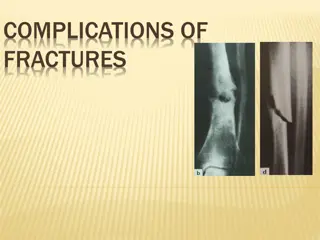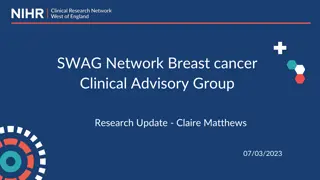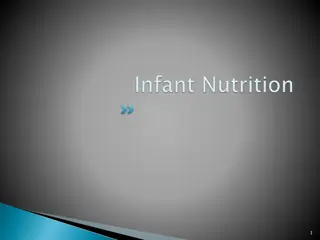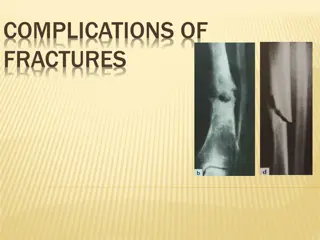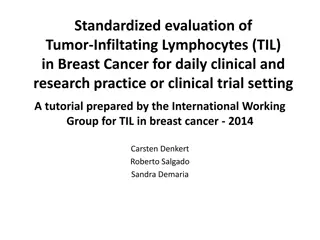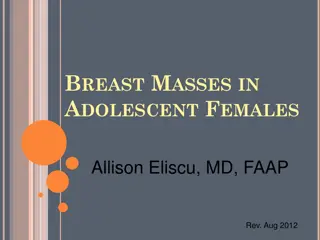Breast Engorgement: Causes, Relief, and Complications
Breast engorgement is a common condition where breasts become hard, swollen, and painful due to excess milk accumulation. It can be uncomfortable but can be managed through various methods. Causes include schedule changes, overabundant milk supply, and weaning. Relief methods such as frequent breastfeeding and warm compresses can help ease discomfort. Complications may arise if left untreated. Understanding and addressing breast engorgement is essential for nursing mothers' well-being.
Download Presentation

Please find below an Image/Link to download the presentation.
The content on the website is provided AS IS for your information and personal use only. It may not be sold, licensed, or shared on other websites without obtaining consent from the author. Download presentation by click this link. If you encounter any issues during the download, it is possible that the publisher has removed the file from their server.
E N D
Presentation Transcript
StudyMafia.Org Breast Engorgement Submitted To: Studymafia.org Studymafia.org Submitted By:
Table Contents Definition Introduction Causes of Breast Engorgement Relieve of Breast Engorgement Complications of Breast Engorgement After Birth Conclusion 2
Definition Breast engorgement is the development of hard, swollen, and painful breasts when too much breast milk accumulates in the milk ducts 3
Introduction Engorged breasts can become extremely large, tight, lumpy, and tender. The swelling may go all the way up into your armpit, and the veins on the surface of your breasts may become more visible or even stick out. This condition frequently occurs when breast milk first comes in, though it certainly can happen at other times as well. It can be quite uncomfortable, but can be relieved by releasing the excess milk from the breast and taking steps to ease discomfort. 4
Causes of Breast Engorgement Schedule Changes Whether you nurse, pump, or do a combination of the two, schedule changes can have a big impact on your milk supply. When milk that is normally expressed at a certain time isn't, it sits in the breasts and causes them to fill, which can quickly lead to breast engorgement if not managed. 6
Causes of Breast Engorgement Overabundant Milk Supply Generally, the amount of breast milk your body makes is based on demand. The more your baby nurses, the more milk is produced, optimally at just the right level to keep your baby full but not engorge your breasts. 7
Causes of Breast Engorgement Weaning or Supplementing Breast engorgement also can happen when you make adjustments to your baby's diet, such as adding first foods, supplementing with formula, or switching to formula or milk. (Note: The American Academy of Pediatrics does not recommend cow's milk for babies until age 1.) 8
Relieve of Breast Engorgement Breastfeed Often Offer your child the breast very often, ideally every one to three hours throughout the day and night. Let your child breastfeed for as long as they want, but aim for at least 20 minutes at each feeding. 9
Relieve of Breast Engorgement Make Breastfeeding Easier Take a warm bath or shower, or apply warm compresses to your breasts, just before nursing or pumping (not in between feedings, as this can worsen swelling). The warmth can help with your let-down reflex and get your milk flowing. 10
Relieve of Breast Engorgement Use Different Breastfeeding Positions Alternate breastfeeding positions to drain all the areas of your breasts. Breastfeed from only one side for an entire feeding to help empty that breast fully. Then, start the next feeding on the opposite side. 11
Relieve of Breast Engorgement Soothe Pain Placing a cold compress or cabbage leaves on your breasts after each feeding can provide significant relief from pain and swelling. Slip them under your bra to help them stay in place. 12
Complicationsof Breast Engorgement Problems for the Baby The pressure from the backup of milk in your breasts can eventually lead to an overactive let- down reflex. A very fast flow of milk can cause your baby to briefly gag, choke, and swallow excessive amounts of air as they're trying to latch on and feed. 13
Complicationsof Breast Engorgement Problems for the Baby Low milk supply may not seem like a likely outcome of engorgement, but it is possible if the issue is persistent. Engorgement makes your breasts full and hard, which can cause your nipples to become flat. This can cause poor latch (when your baby has difficulty connecting to the nipple properly). 14
Complicationsof Breast Engorgement Problems for the Baby Some babies may also go on a nursing strike during engorgement due to frustration from trying to latch on or coping with a strong letdown. Low milk supply aside, this alone can cause poor weight gain and erode breastfeeding confidence 15
Complicationsof Breast Engorgement Problems for the Breastfeeding Parent Many women leave the hospital within a few days of childbirth, so breast engorgement often begins at home. Since breast engorgement can be painful, unexpected, and cause difficulty with latching on, it's a common cause of early weaning. 16
Complicationsof Breast Engorgement Problems for the Breastfeeding Parent Many women expect breastfeeding to be easy but find that getting the hang of it can actually be challenging, especially as struggles like breast engorgement can make a new parent feel inadequate, frustrated, or lost. Know that it's not your fault and these are common issues. 17
Complicationsof Breast Engorgement Problems for the Breastfeeding Parent Also, consult your doctor to ensure you have the correct diagnosis to prevent and address these complications, as some of them, like mastitis, need treatment beyond nursing management.7 Consulting a lactation consultant can also make a world of difference. 18
After birth It's normal to have some degree of breast engorgement during the first week or two after the birth of your baby. An increase in blood flow to your breasts along with a surge in your milk supply often results in your breasts getting overly full. Engorgement that happens in this period is often the most intense a mother will experience. The majority of new mothers experience it to some degree. 19
After birth If you're breastfeeding, this stage of breast engorgement typically starts to get better within a few days as your feeding habits take hold and your milk production adjusts to meet your baby's needs. However, you may experience engorgement after this time if you miss a few feedings or pumping sessions. 20
Conclusion Knowing what breast engorgement is, when it's likely to occur. Remember, this condition is temporary and tactics like consistent nursing, fully draining breasts, weaning slowly, nursing equally on each side, and using ice packs or cabbage leaves to help reduce any swelling can help tremendously. 22
References Google.com Wikipedia.org Studymafia.org Slidespanda.com
Thanks To StudyMafia.org
